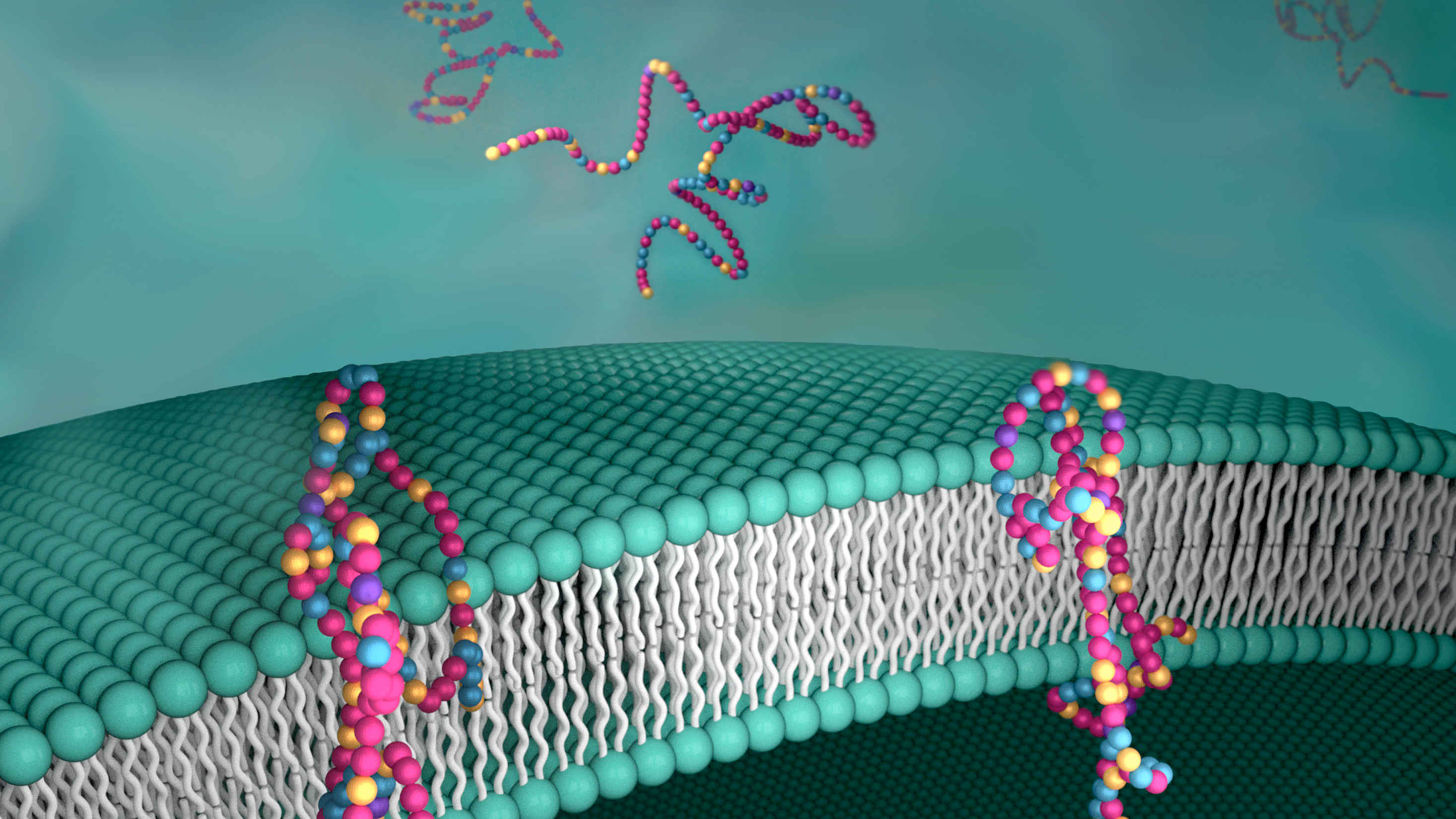 Scientists have created a synthetic film that mimics transmembrane proteins. (Image by Jill D. Hemman, Oak Ridge National Laboratory)
Scientists have created a synthetic film that mimics transmembrane proteins. (Image by Jill D. Hemman, Oak Ridge National Laboratory)Grand designs
Researchers led by Ting Xu, professor of materials science and engineering and of chemistry, have created a synthetic material that is as effective as naturally occurring proteins in transporting molecules through membranes, a major milestone that could have applications in water desalination, batteries, pharmaceutical and biofuels research. Mimicking transmembrane proteins, which act as gatekeepers in living cells, has been a key goal — and a significant bottleneck — in synthetic membrane development, but this new achievement could alleviate that jam. The team of researchers designed a polymer that selectively transported protons, or charged subatomic particles, across an acrylic film at a rate similar to those of natural proton channels while successfully filtering out other types of cations.
The scientists also provided a solution to a long-standing challenge in designing synthetic proteins that worked like their natural counterparts. For decades, scientists believed that they had to copy an exact monomer sequence to create a synthetic polymer that would function as well as naturally occurring proteins. But Xu and her collaborators found that the monomers don’t have to line up nor match exactly to function like a protein. Rather, their design only requires researchers to statistically control the sequence of four types of monomers for the polymer to perform as well as a naturally occurring protein. The monomers can be grouped into segments like Lego pieces to construct functional protein-mimics.
